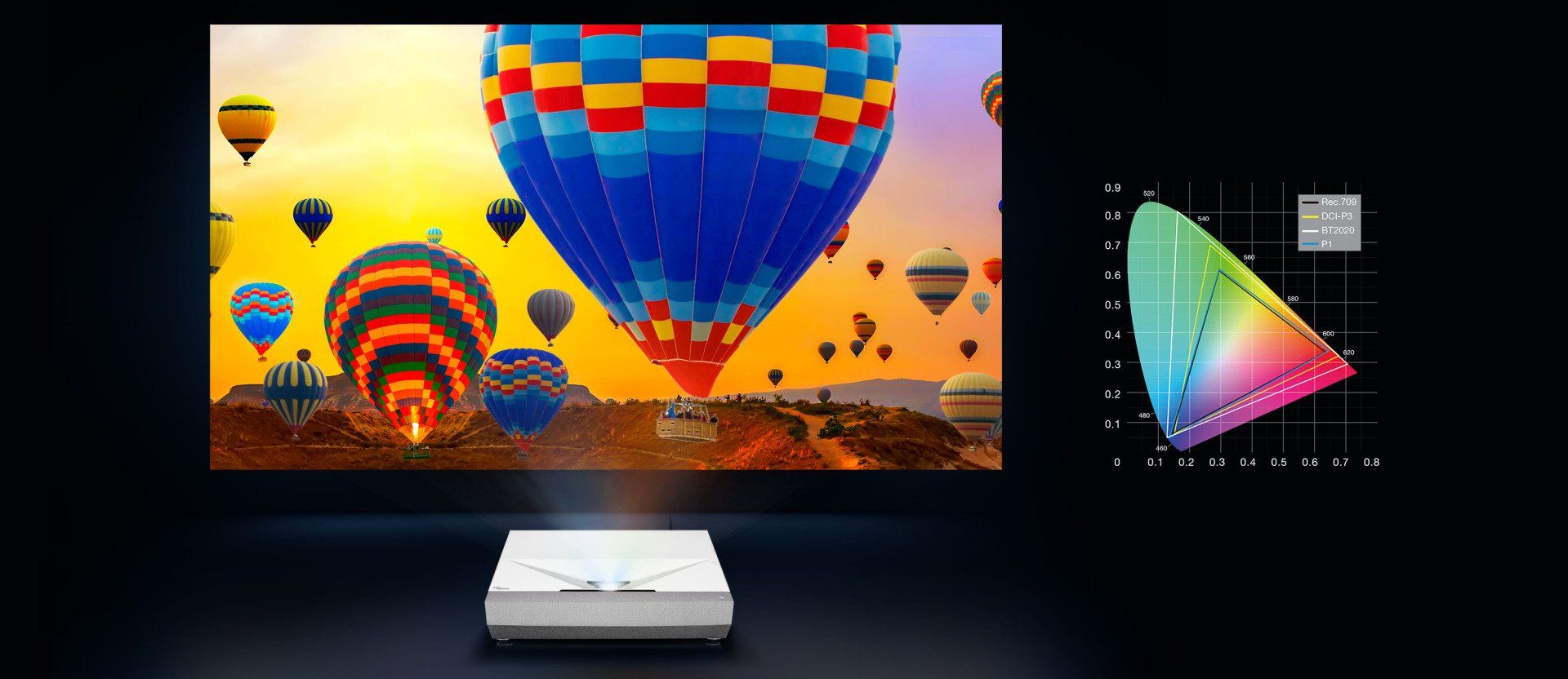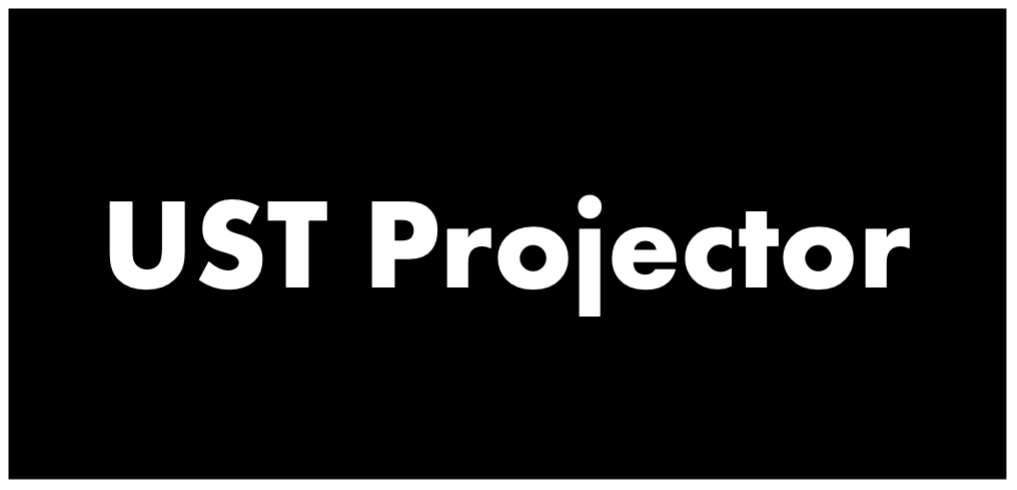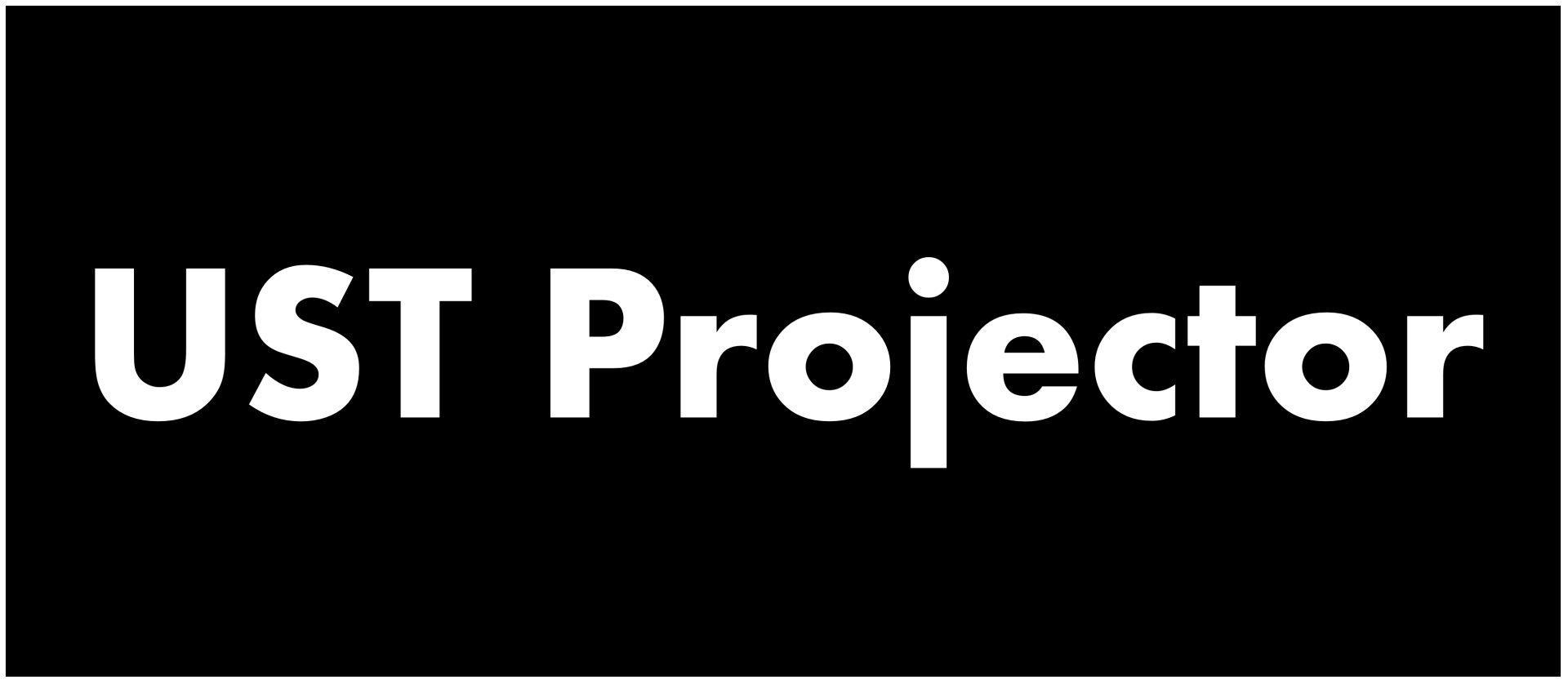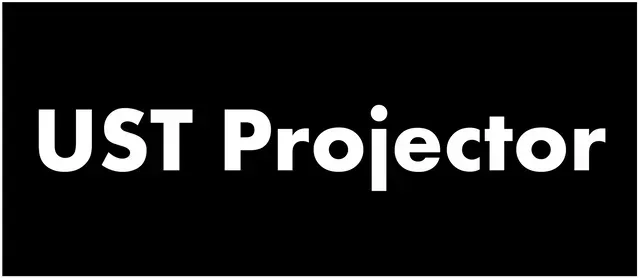Projector Technology
If you hear "throw" and the first thing you think of is a ballplayer, you probably don't spend a lot of time with projectors. A projector's throw—the distance between it and the screen—is one of its key features and an important way to categorize it. Throws, and the lenses that determine the throw, are classified as long, standard, short, or ultra short.
Differences in throw can give otherwise identical projectors very different capabilities. You want a big image in small room, but can't position the projector you have far enough back to get one? Well, you need a projector with a shorter throw. You want to replace your TV with a projector, but don't want to run cables through walls and ceilings to hide them? No problem. Get one with an ultra short throw, put it on top of the entertainment center where your TV's sitting now, and mount the screen on the wall just above it or simply just use the adjacent wall for the display.
Advanced Laser Phosphor Display Laser Technology - ALPD3.0
4K UST laser projectors have been on the scene for some time, but only recently have they gained traction in the mainstream market. This shift can be attributed to four key factors:
- Through the integration of ALPD 3.0 technology, these projectors can now render dramatically enhanced high-contrast visuals with deep, vivid hues from a minimal distance.
- The emergence of high-contrast ALR projector screens has encouraged a pivot from traditional standard throw home cinema projectors.
- UST projectors coupled with ALR screens can seamlessly fit into any living area, eliminating the need for a specialized dark room.
- When it comes to pricing, 4K UST Laser projectors are considerably more affordable than their Native 4K standard throw counterparts.
The advancements brought about by ALPD 3.0 laser light technology are noteworthy. It has ushered in significant enhancements in color accuracy and range, while also fostering a lightweight design and increased reliability in high-end projectors. The technology has boosted light source efficiency by 20%, achieving unmatched color brightness in single-chip UST DLP projectors and aligning color accuracy with the DCI color gamut standard.
Moreover, ALPD 3.0 has opened doors for projector manufacturers to realize cost savings. By allowing them to produce captivating visuals with just a single chip DLP, the technology has indeed transformed the projection landscape.
ALPD 3.0 Blue Light Energy for Eye Protection
Beyond attributes like color, brightness, and light source longevity, the paramount benefit of ALPD 3.0 is its emphasis on eye safety, a fundamental concern for many users. In contrast to liquid crystal display technology, which can pose long-term harm to our eyes, an Ultra Short Throw projector equipped with ALPD 3.0 laser technology offers a safeguard against radiation and fatigue. This is owing to its reduced blue light emission and lower strobe frequency. Additionally, its reflective imaging feature ensures light isn't directly projected into the viewer's eyes, adding another layer of protection.

ALR Technology
Ambient Light Rejecting (ALR) Projector Screens employ a distinct dual-function fabric. This material features an angular sawtooth pattern paired with a light rejecting layer. Together, these elements expertly mitigate ambient light from above while reflecting a crisp image from the 'Ultra Short Throw (UST)' laser projector positioned below.
This screen's serrated optical design facilitates image projection from underneath, directing it onto a specialized reflective plate. This then casts the image towards the viewer within a 170-degree angle. This same serrated design incorporates a light-dampening filter. Instead of reflecting stray light, it disperses it, eliminating the hazy effect commonly associated with conventional screens.
ALR fabrics are meticulously designed for controlled light acceptance and reflection. Their primary objective is to efficiently capture and reflect light from direct sources, such as a projector, while minimizing reflection from indirect sources like room lights and windows.
Final Remarks
At UST Projector, our dedication lies in equipping you with unparalleled cinematic experiences. We take pride in ensuring we are not just up-to-date but also at the forefront of innovative technology. The transformative potential of UST Projectors, powered by breakthroughs like ALPD 3.0, ALR screen technology and more, aims to redefine your viewing experience. Curious to see this technology in action? See our product showcase featuring leading brands such as Formovie, Epson, LG, Samsung, Vividstorm and more...
here.


